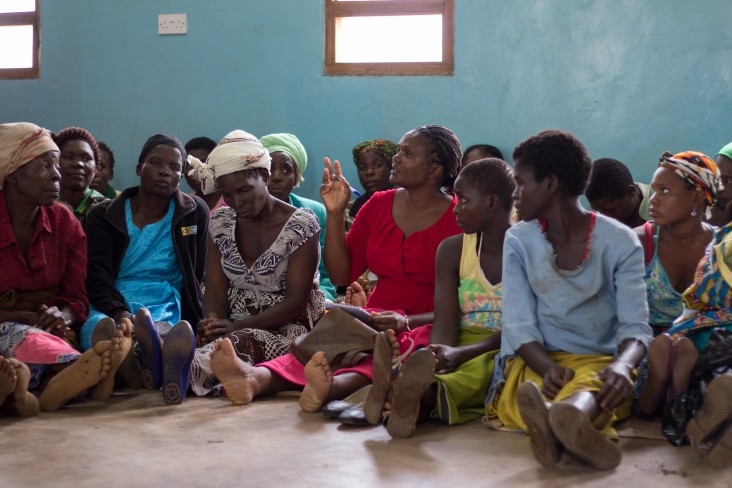
PROGRAM OVERVIEW
“For the first time, the youth are being considered in all development initiatives taking place in this area…we have developed a good relationship with our Local Councilor and our representatives in Parliament and are able to meet them regularly to follow up on issues that matter to us.” – Isaac Benson Scale, Youth and Civic Education, on USAID’s Civic and Voter Education Project
USAID/Malawi supports institutional strengthening and increased citizen participation in decision-making. It provides significant assistance to civil society organizations (CSOs) engaged in grassroots advocacy; supports their demands for quality services; and seeks to ensure that public sector decision-making responds to their interests at the local level. By increasing citizens’ opportunities for engaging with government officials, these activities cultivate democratic legitimacy and inclusion in local development processes. In parallel, the support given to elected councilors and district administrative staff helps local governance institutions respond more effectively to the increasing demands for accountability and services. As a result, councilors and district staff are able to collaborate more effectively and focus more attention on improving service delivery and public financial scrutiny. Nationally, USAID supports the Government of Malawi’s Public Service Reform (PSR) initiative through continued engagement on policy reforms and through the development of new programs. This support helps to provide long-term technical assistance for civil service reform, decentralization, public financial management, as well as sector-specific reforms.
USAID/Malawi’s integrated Country Development and Cooperation Strategy (CDCS) embodies USAID's Democracy, Human, Rights and Governance integration model. USAID is working across technical sectors to advance governance objectives and rights-based approaches to development. An increasing number of activities are jointly funded by different sectors to address the governance constraints that underpin or exacerbate a wide range of development challenges. Therefore, USAID is facilitating district-led development and coordination for improved planning and accountability that will be sustained beyond the life of any of the health, education, economic development, environmental protection and democracy/governance activities across the mission portfolio.
In coordination with the Ministry of Local Government and Rural Development and implemented by the National Democratic Institute, USAID launched a series of trainings under the Malawi Electoral and Decentralization Activity for all 55 local councilors in USAID/Malawi’s focus districts of Balaka, Machinga, and Rural Lilongwe. As a result, new local councilors thoroughly understand their roles and responsibilities and are now developing local policies, better representing their constituents, and improving oversight of district-level activities.
Complementary to its support for local governance, the Mission launched a cross-sector civil society institutional capacity development activity, Supporting the Efforts of Partners (STEPS), in February 2015. Through STEPS, USAID is building the organizational capacity of CSOs across the entire portfolio. This activity is improving organizations’ skills in financial management, strategic planning, program management, monitoring and evaluation, research, and advocacy. Interventions strengthen organizations’ long-term sustainability and help them deliver even stronger results. Over time, some of these local organizations may become eligible for direct USAID assistance.
IMPACT
During 2015, USAID increased citizen participation in decision-making by:
-
Delivering civic education campaigns on local governance to 1,214 citizens, including 589 women, to teach citizens how to effectively engage with their local governments.
-
Training 55 newly-elected local councilors in public financial management, citizen representation, and local policy issues.
-
Providing technical assistance to the Ministry of Local Government and Rural Development in the development of its Integrated Rural Development Strategy.
-
Completing baseline organizational assessments of 21 local CSO partners using the Participatory Organizational Development Assessment (PODA), piloting the Organizational Performance Index (OPI) tool, and developing tailor-made organizational capacity development interventions.
-
Gathering citizens’ views on local governance-related issues through focus group research in order to promote civil participation in the democratic process.







Comment
Make a general inquiry or suggest an improvement.